Gavin Harrison Exposes the Secrets of His Expert Rhythmic Designs
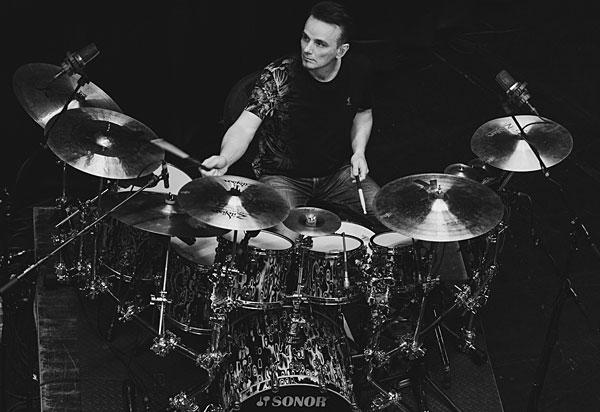
"I'm much more of a here and now kind of person," he says. "I just try to do the best I can and get involved in projects I like the quality of—and purely for my own amusement, actually. I'm not really doing it for anyone except myself. I like doing things I enjoy doing and that I'm proud of, but that's really where the enjoyment basically ends. I'm not trying to please fans, fellow drummers, or anyone else. It's pretty much for my own entertainment. I do exactly what I want to do."
Even so, Harrison continues to add to his highly regarded recorded C.V. with a pair of current releases, The Pineapple Thief's emotionally raw Versions of the Truth (kScope) and his equal-billed collaboration with fusion composer Antoine Fafard, Chemical Reactions—not to mention his contributions to the February 2020 3CD/1BD kScope box-set upgrade of Porcupine Tree's seminal September 2002 release (and Harrison's first behind the kit for the band), In Absentia.
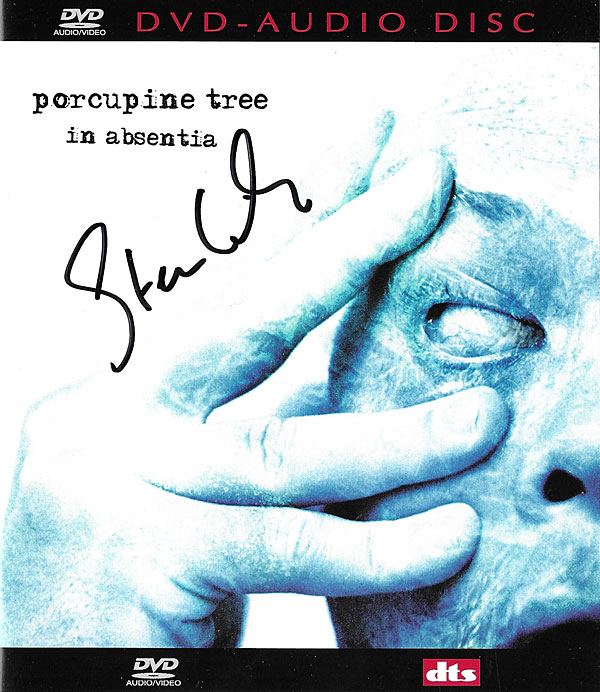
(Incidentally, it's somewhat interesting that the abbreviation for both of the seminal modern post-progressive bands Harrison was and is a member of happens to be PT—but I digress.)
Harrison, 57, and I recently did the Skype thing across the Pond to discuss his philosophy of how important utilizing space is in surround sound mixes, how he meticulously arranges the material that's played onstage by all three top-tier drummers in King Crimson, and—believe it or not—his admiration for pop material by the likes of (yes) Britney Spears and Dua Lipa. No matter how closely I study it / No matter how I take it apart / No matter how I break it down / It remains consistent. . .
Mike Mettler: If I were to take a look at the occupation line on your passport, would it list you as "designer of rhythmic architecture"? Would that be a good description of what you do?
Gavin Harrison: I guess I could get away with that, yes! (laughs)
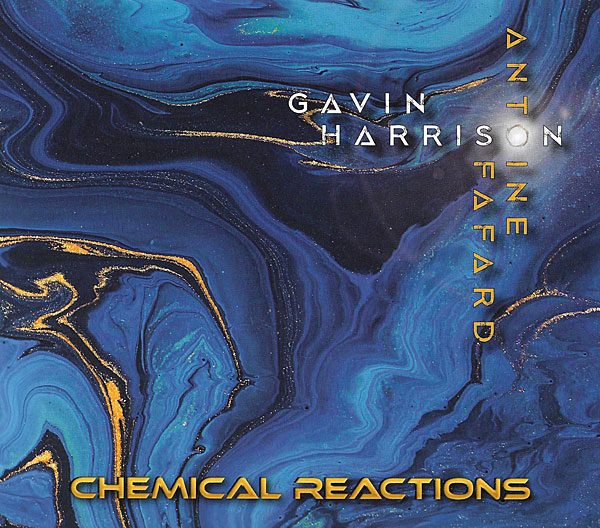
Mettler: That seems to be the philosophy of how you arrange material. First, let's talk about your collaboration with Antoine Fafard, Chemical Reactions. One of my favorite tracks on there has to be "Singular Quartz," which features Jerry Goodman on violin. Will we get a surround mix of that album, or is it just stereo only?
Harrison: I believe it's just stereo at the moment. I don't know if Antoine's planning on doing a surround mix of it. The thing is, without a record company, you're sort of doing everything yourself and managing everything—and Antoine manages it all—so, doing vinyl, surround, and all those kinds of things suddenly becomes a real headache, and it's really expensive too. That's a big load of work for one person.
Mettler: That's true. As an artist yourself, you like the surround medium, and you've been involved with a number of 5.1 projects, both solo and with a number of your groups. What do you like about the artform?
Harrison: It's nice, especially if you have an album that has a lot of material on it in terms of sonicmaterial—like if you've got an orchestra, or you've got a 15-, 16-piece big band. You've got space to pan them around the room, and you can hear details you wouldn't hear in a stereo mix.
But I don't like panning the drum kit around the room. It sounds completely disjointed to me, so I nearly always leave the drum kit in the front pair, as a stereo pair. I don't really hear the drum kit wrapping all around. It just sounds weird to me.
Mettler: The only band that can really get away with a 360-degree rotation are The Flaming Lips, because it fits their aesthetic. Usually, we're not hearing that kind of 5.1 presentation, which sounds like where you're coming from.
Harrison: Yeah, it has to have some musical coherence to it. Having a bass drum coming out rear left and a snare drum coming out front right, just for the sake of it—I don't think it makes the music any better.
Mettler: I think you're right about that—and that's why I like the surround mix done for the new Pineapple Thief album, Versions of the Truth. Did [PT co-founding vocalist/guitarist] Bruce Soord do that surround mix purely by himself, or did you collaborate with him on mixing it?
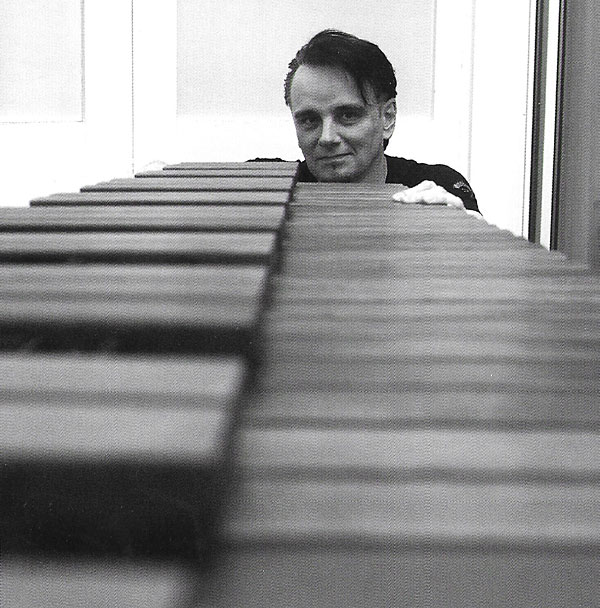
Harrison: No, Bruce did that—but, of course, I mixed the drums. I only send Bruce a stereo mix of my drums. On Versions of the Truth, I play marimba, and maybe three or four overdubs of marimba. I said to him, "Look, take all these separately, and pan them around the room. It'd be lovely if the marimba was coming from all sides. But the drums, just keep them in the front pair."
Mettler: That mixing philosophy immediately brought me back to what you did on your 2015 solo album Cheating the Polygraph, where you have orchestral versions of various Porcupine Tree songs in 5.1. Didn't we also get a good marimba track mixed that way on the "Hatesong / Halo" mashup?
Harrison: That's true. That's true, yes.
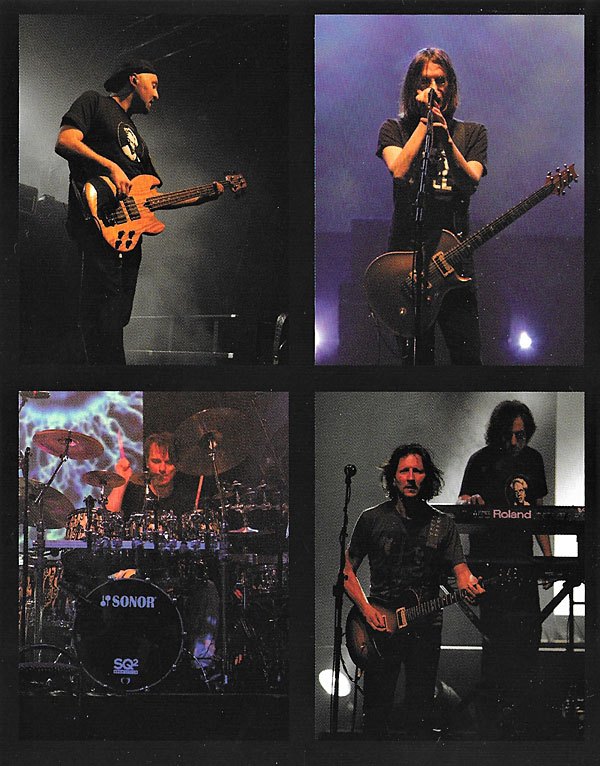
Mettler: I think that mix fills up the space in just the right way. It seems to me when it comes to Versions of the Truth, if ever there's a record that needs space to breathe, it's that one. It's hard for me to go back and listen to it in stereo, after having it in surround. I have a similar feeling about listening to Polygraph, especially because it hearkens back to those big-band roots of yours and those of your father, who played trumpet in a jazz big band.
Harrison: The Cheating the Polygraph record was a sort of bucket list album I'd been wanting to do. I didn't think, "Oh, I've got to do a follow-up," or "I've got to do an album of King Crimson covers for big band," you know? It satisfied my want to make that record. I do love the sound of brass playing, but it doesn't fill my thoughts much these days.
Mettler: I can see that. You started out as a session player, and as I was watching the documentary on the Blu-ray in the Porcupine Tree In Absentia box set that was put out earlier this year, I guess we can call that your trial by fire. Does that basically fit your recollection of being on display like that, after coming to play for the band in Avatar Studios in New York?
Harrison: Yeah, it was quite normal for me to go to studios and make records as a session musician. And In Absentia was one album I did in that mode. I got paid as a session musician. I turned up, I did about five days, and I went home again.
Mettler: Did you have any feeling that you were going to be in the group at that point, or did you just come in and do the work? Did it feel like you were collaborating, or getting into a vibe with those guys?
Harrison: Well, there's always an amount of collaborating in any session—but, no, at that point, I didn't think it was anything more than just playing on that record. There was no talk of me joining the band or touring with them. But with every record you do, there's always the possibility the person you're working for might decide to go on tour, and might decide to ask you to come on the tour with them.
Mettler: When did you get a sense of, "Oh, I want to be in this group"? What turned the tide for you?
Harrison: Oh, it was about a year ago! (MM laughs) No. Well, I think what turned the tide was, I just got interested in the idea of what would it be like to be a bandmember. I'd been a session musician, hired hand, gun-for-hire sort of person since the early '80s. Here we were in 2002, and they said, "Would you like to join the band, come on tour with us, and be a bandmember?" And I thought, "Well, yeah, maybe." I was earning a lot more money doing session work and touring as a session musician, but I thought, "Oh, well, maybe there should be a point in my life where I at least experience what it's like being a bandmember."
Mettler: Yeah. I'm going to guess it worked out.
Harrison: Uhh yeah, it worked out! But the first two or three years were pretty hard, and I don't know what I was expecting. It was a lot harder than I would have liked. I mean, we earned nothing, and went around playing really miserable clubs to very few people in very bad conditions. Not something I would ever want to repeat, anyway.

Mettler: I remember seeing some of those early shows. At least it eventually got better for you guys, since the last Porcupine Tree show in the States was played in front of a sold-out crowd at Radio City Music Hall in New York [on September 24, 2010], and it was an honor to be there. Anyway, I always liked that, by the time you get to the Deadwing record [released in March 2005], there was a great idea you had put forth for "Start of Something Beautiful," with all the time-signature changes. That all came from your input, right?
Harrison: Yeah. After the In Absentia record, I was starting to get fascinated with metal-style music because I had not really done any metal playing, and I suppose Porcupine Tree was my first exposure to that.
I wanted to write a metal-style piece inspired by the band Meshuggah. One day, I invited [PT founder/mastermind] Steven Wilson to come around. I said, "Bring your guitar 'round, Steve—I've got this idea for a song. I've gone and played at these drum clinics, and I've written all these riffs, and odd-time things." He came 'round and we worked on a piece, and then he said, "Oh, I really like this! I want to take it away, and turn it into a song"—which he did. That was the first time I tried to write something with Steve, and that was probably 18 months before we started writing Deadwing.
I think Deadwing was a better experience for me, because it was the first time I'd experienced it from the ground up. When I got involved with In Absentia, all the material was already written, so with Deadwing, that was the first time I got involved right from the ground upwards.
Mettler: And then came Fear of a Blank Planet [released in April 2007], which is a bit of a benchmark, I think.
Harrison: Yeah, that was a nice record. We were getting worried that people were always recording the shows and bootlegging the shows, and that kind of bummed us out a bit. After we wrote and rehearsed the material for Blank Planet, I said, "You know what? Let's do a 180-degree turn and just go out and play it before we've even recorded it." We went on maybe a 20-date tour, we played the new material, and we asked the audience very nicely not to record us, as it was still a work in progress.
Mettler: I remember [then-PT manager] Andy Leff would literally go into the audience at that time and stop people recording anything, if he caught them doing it.
Harrison: Yeah—and they still recorded it anyway! But it was actually quite a good experiment. We went 'round about 20 dates, as I said, playing the whole new Fear of a Blank Planet record. I think "Cheating the Polygraph" was going to be on the record, and at the last minute, we switched it to "Way Out of Here." That may have been a mistake; I don't know.
When we came to record those songs, it was actually very easy because we'd all played together, rehearsed together, and played it all in front of an audience, and got the feeling and the reaction from the audience as much as we could. That affected a little bit of what we played and how we arranged it, so it was probably one of the nicer experiments we did for making a record.
Mettler: Something that sticks out to me from Planet is a song like "Anesthetize," one that would be really interesting to hear before and after mixes for how it came about. You have Alex Lifeson of Rush playing guitar on that one. And you also have [King Crimson co-founding guitarist] Robert Fripp doing all those cool soundscapes on "Way Out of Here," to give that song a bit of the Frippian touch.
Harrison: That's right—and he also played on the EP that is the companion disc to Fear of a Blank Planet, the one that was called Nil Recurring [released in September 2007].
Mettler: Right, That EP has another one of your favorite moments on there too in "Cheating the Polygraph," which is where that track finally ended up.
Harrison: Yeah. That's a really nice disc, actually.





























































